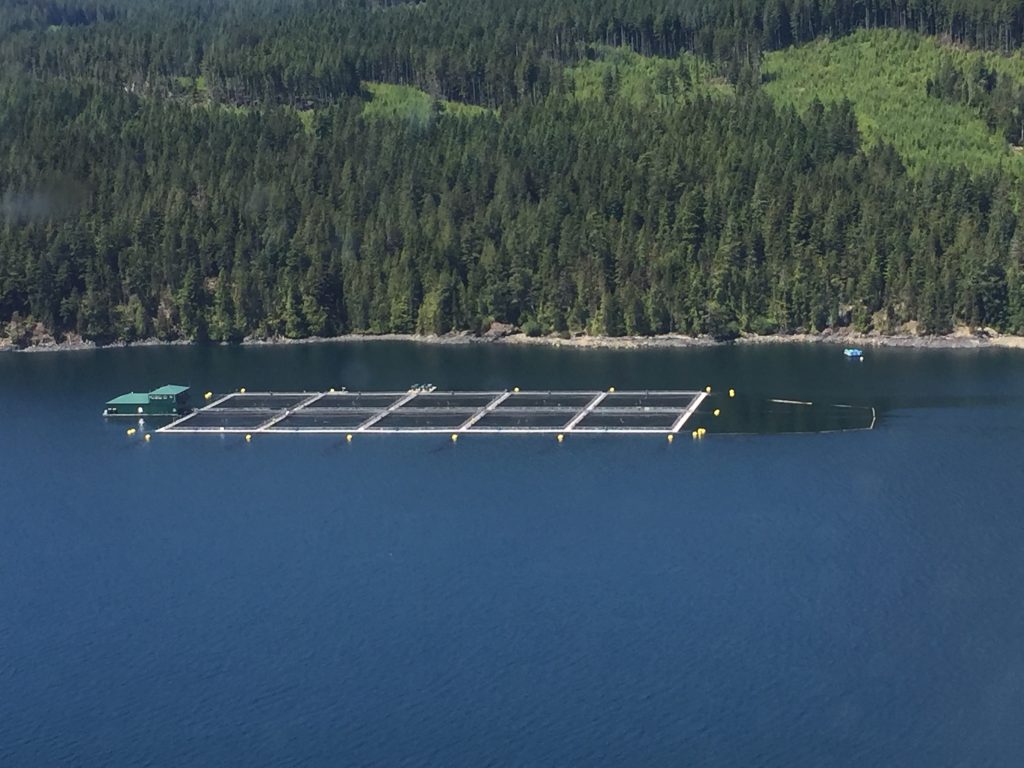A common vision to protect wild salmon
B.C. government releases advisory council report on salmon aquaculture
By Fabian Dawson
SeaWestNews
A B.C. government panel’s report on aquaculture underscores the need for salmon farm practices to better align with a common vision on the importance of sustaining wild Pacific salmon.
It also reaffirms the importance for government and the salmon farming industry to build greater trust among British Columbians.
The recommendations were made by the Minister of Agriculture’s Advisory Council on Finfish Aquaculture (MAACFA) which was set up in 2016 to advise the provincial government on salmon farming.
The BC Salmon Farmers Association (BCSFA) said it agrees with many of the recommendations in the report, and looks forward to working with all levels of government, coastal communities, and First Nations to continue evolving B.C.’s $1.5-billion salmon aquaculture industry.
While the Council of diverse stakeholders, including academics, environmental groups, and First Nations, did not find consensus on the risks of the potential impacts associated with salmon aquaculture in B.C., it was able to agree on the principles of six key recommendations.
“With an average of 70 per cent of salmon harvested in B.C. and more than half of the fish harvested globally coming from farms, the industry plays a key role in both meeting our demand for healthy fish to eat and in reducing the strain on wild fish stocks from over-fishing,” said Rocky Boschman, BCSFA board member.
“While any farming, on land or water, has an environmental impact it can be done responsibly and with wild stocks top-of-mind. That is our goal,” he said.
“The report recognizes the advancements salmon farmers have made over the past 30 years in fish health, environmental protection, and in developing relations with Indigenous governments, while also making recommendations for advancing that work in the coming years.”
However, the salmon farmers took issue with one of the recommendations saying it is “unworkable.”
The recommendation states that salmon farmers “Acknowledge and incorporate First Nations’ rights, title and stewardship responsibilities in all aspects of fish farm governance, including tenuring, licensing, management and monitoring in a manner consistent with the United Nations Declaration of Rights of Indigenous Peoples (UNDRIP).”
While salmon farmers agree collaborating with local First Nations when working on Crown land is crucial the recommendation that would require Crown tenure holders to acquire First Nation agreements as a condition of continuing operations at existing business sites is unclear and would be unworkable in practice, a BCSFA statement said.
For the last 10 years, all new site applications from BCSFA members to provincial or federal regulators have had prior support of the Indigenous government whose traditional territory the operation would be located in.
Making a recommendation on consultation over existing sites sits outside the mandate of this Council, which was charged in 2016 with offering the government advice on issuing new tenures – not existing sites, the BCSFA said.
Some salmon farms have been in place for 30 years, and are key employers in their communities. All salmon farmers who hold existing licenses have reached out to all local First Nations and in most cases secured agreements on how to work together through open dialogues. Indeed, B.C. salmon farmers have agreements with 20 First Nations and many of the 6,600 jobs supported by the province’s salmon farms are held by people of First Nations heritage.
However, in a handful of cases a local community has refused to even speak with local farmers, so dialogue and reaching an agreement has not been possible.
“Clarity about the process for consultation on existing sites and the need for all parties to productively sit at the table together are necessary for this recommendation to be effective in practice,” the BCSFA said.
The BCSFA has written to the provincial government offering to consult further on this and other recommendations.
In British Columbia, lawyers have raised concerns that billions of dollars’ worth of development in areas subject to aboriginal land claims, could put the economy at risk, because UNDRIP requires free, prior and informed consent from indigenous people before adopting and implementing legislative or administrative measures that may affect them.
Canada has over 600 Indigenous communities or bands. B.C. has the highest number, at 204 recognized bands.
While some are opposed to aquaculture and salmon farms, 40 First Nation and Indigenous communities are now directly or indirectly involved in farming seafood in Canada.
Salmon farmers in BC work closely with coastal First Nations and have 20 social and economic agreements in place. About 78% of the B.C. harvest is from farms covered under First Nation Agreements.
“It’s a very difficult issue, there’s a lot of varying opinions,” Minister of Agriculture Lana Popham said in a teleconference with provincial media, “and I think the report is substantial and will give us a lot to work with.”
“I think it’s very important from our end to make sure we have the right processes in place, take the time that’s needed for an outcome that is acceptable to everyone and when it comes down to science, obviously, we will let the scientists do their work but they will have a big part to play,” the minister said.
About the BC Salmon Farmers Association:
Farm-raised salmon is B.C.’s highest valued seafood product, the province’s top agricultural export, and generates over $1.5-billion towards the B.C. economy, resulting in over 6,600 jobs.
The BC Salmon Farmers Association represents 52 businesses and organizations throughout the value chain of finfish aquaculture in B.C. Our members account for over 95% of the annual provincial harvest of farm-raised salmon, 100% of the salmon feed produced in B.C., and most of the service and suppliers involved in ensuring that over $700-million (2016 value) of salmon raised in B.C. gets to domestic and global markets.

